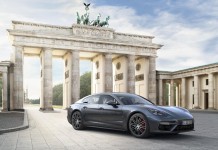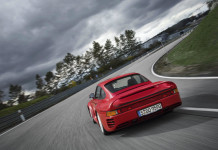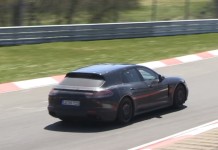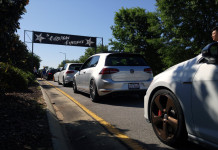Volkswagen has bolstered its bid to become the world’s biggest automaker by 2018 after it won a bruising battle with its biggest shareholder, Porsche.
VW, the biggest European car maker, wants to overtake Toyota as number one, but a boardroom struggle with the sportscar icon, which was resolved Thursday, has distracted it from the goal.
“Apart from the loss of an extremely capable car manager, the end of the conflict is a relief for both VW and Porsche,” the Financial Times Deutschland commented.
“The saga was absurd, and all the power and style questions precluded a focus on economic reason.”
German media declared VW the clear victor in a bitter dispute with Porsche after both agreed to settle the matter and get on with a merger.
“Of course there are winners and losers here — claiming anything else would be naïve,” the Frankfurter Allgemeine Zeitung (FAZ) said.
Investors agreed, and VW shares showed a rise of 1.45 percent to 258.70 euros in late trading on Friday after gaining 1.21 percent the day before.
Porsche shares had lost 1.99 percent to 50.72, after gaining a slight 0.27 percent on Thursday.
VW and Porsche say they will form an integrated auto manufacturer by mid 2011 within which Porsche can retain its independence but without hard-charging chief executive Wendelin Wiedeking, who has resigned.
The Gulf emirate of Qatar is to buy 17 percent of VW meanwhile, the group said, and possibly a stake in Porsche as well.
Wiedeking’s bold attempt to take over the much bigger VW made an enemy of Ferdinand Piech, the fearsome president of VW’s supervisory board and a key Porsche shareholder.
Piech emerged top dog from a nasty months-long scrap with Wiedeking and Piech’s cousin Wolfgang Porsche, another major Porsche shareholder who had backed the VW takeover bid.
“Wiedeking and his main supporter, Wolfgang Porsche, have ‘lost’ the power struggle. VW Group and Ferdinand Piech are now clearly in the driver’s seat,” the private bank Sal Oppenheim said in a research note.
Nord LB auto analyst Frank Schwope was less convinced of a clear-cut victory however, telling AFP: “I am sure there are still many problems on the way for an integrated company.”
Qatar has not been heard from yet, he noted, and the projected date for a finalised merger “is a long long way” off, Schwope said.
“A lot of things you don’t expect now can happen in these two years,” he noted, giving the plan a “maybe 75 percent” chance of success.
Porsche would become VW’s 10th brand, with autonomy similar to that enjoyed by Audi, Bentley, Bugatti, Lamborghini, Seat, Scania, and Skoda, after raising at least five billion euros (seven billion dollars) through a capital increase.
Porsche must pay down 10 billion euros in debt run up while it tried to take over VW, and is to progressively sell its core auto unit to VW while the parent companies merge.
Wiedeking and Porsche finance director Holger Haerter “had to fall on their swords,” IHS Global Insight analyst Tim Urquhart commented, though Wiedeking will receive 50 million euros in severance pay to stuff in the wound.
In a bid to deflect public anger about the size of this “golden parachute,” half would be donated to charities including a foundation to support Porsche workers, Wiedeking said.
Urquhart also wondered how Porsche “will co-exist alongside companies that are actually major rivals, such as Audi and Lamborghini.”
But media highlighted the victory of VW’s supervisory board chief, with the business daily Handelsblatt running the headline: “Piech wins – Porsche cries,” along with a picture of Wolfgang Porsche in tears as he spoke to workers after the decisions were announced.
The FAZ commented that “Wiedeking’s problem was that in this contest, which started with both of them on the same side, Piech became his opponent.”
“That has never been good for anyone,” the paper concluded in a comment echoed elsewhere.








